Chicago Symphony brass make a glorious sound in a non-holiday program
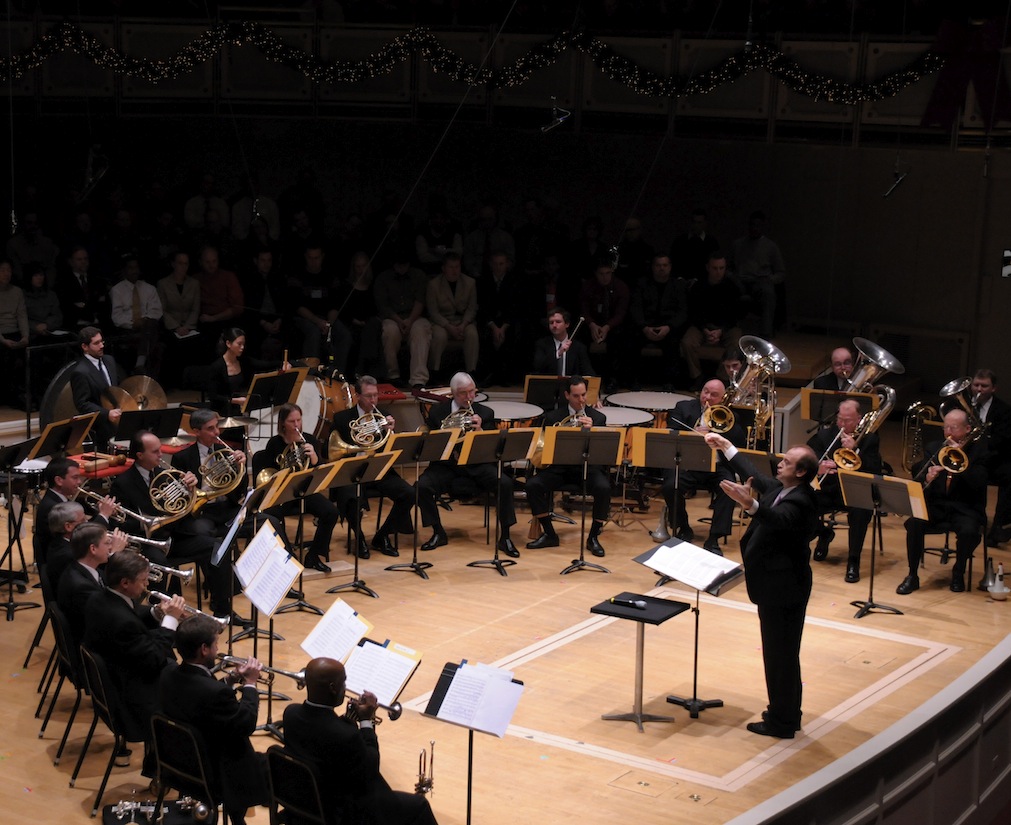
For those yearning for a dose of holiday cheer, nothing does the trick like a jolt of joyful noise. For a good number of them, nothing fits the bill like the soaring blast of a brass ensemble. And for classical music lovers around the world, nothing means brass like the justly vaunted virtuosi of the Chicago Symphony Orchestra.
But how does one assemble a program for brass in mid-December without some of the expected holiday fare? Let’s just say arrangements can be made.
With one exception, the entire set of six programmed works (and one inserted piece) performed Thursday afternoon at Symphony Center consisted of transcriptions. The causes could have been economic (minimal rehearsal time), misperceived concessions to the tastes of the Midwest Clinic (an international band and orchestra conference whose attendees packed the hall), or the dangers of programming-by-committee. Simply put, it was a lengthy concert of uneven arrangements gloriously performed.
The concert began like many brass affairs, with excerpts from Gabrieli’s sublime Sacrae symphonie, realized with breathtaking precision and polish by an ensemble of trumpets and trombones. Antiphonally spaced divisions would have added to the effect, but the ineffable billowy softness of the trombones in piano passages and the brilliant clarion calls of the trumpets were a marvel. Dynamics contrasts were sharply etched, meter changes in the two canzoni were tightly negotiated, and intonation was flawless.
It has been said that Bach’s music survives transcriptions better than that of any other composer. Eric Crees’ clumsy arrangement of the Passacaglia and Fugue in C Minor puts this theory to a stern test. Earlier retoolings of this titanic keyboard work for large forces by Stokowski and Respighi seem dated these days, but still hold some appeal. The most annoying liability was the complete absence of flexibility among the 18 brass instruments, but the clipped articulations Crees employed in the low brass were a close second. The arranger had many possibilities at his disposal, and he took advantage of far too many of them.
Percy Grainger’s Lincolnshire Posy drips with layers of nostalgia for aficionados of both band and English folk music. The original is a classic that is tough to replicate, and arranger John Higgins didn’t quite pull it off, though many sections made the transition well. Trumpeter Chris Martin set a speed record for his blistering triplet passages in The Brisk Young Sailor, a feat that prompted audible gasps from many in attendance.
The least plausible arrangement was Herman Jeurissen’s Tristan Fantasy, a reduction from Wagner’s opera for six horns. While this was not the tidiest performance of the day, the condensation worked surprisingly well because the arranger kept tightly focused on just two primary ideas. Hunting calls lent a crisp alpine chill, and ominous passages of foreboding were a potent reminder of the opera’s tragic undercurrent.
The finest reconsideration was Bruce Roberts’ version of Silvestre Revueltas’ Sensemayá, led through a taut reading by Michael Mulcahy. A sizable percussion contingent helped considerably, beginning with a pulsating ostinato in the bass marimba, while John Bruce Yeh’s searing E flat clarinet lines soared through the hall, one of many gestures reminiscent of Stravinsky’s Rite of Spring.
It takes chutzpah to arrange a work from a colorist of the stature of Prokofiev, but since Joe Kreines chose movements heavy in brass and percussion in the original orchestration of the ballet Romeo and Juliet, the risk was minimized. Once again Chris Martin was a standout, as much for his warm lyricism as high-flying acrobatics. The Dance spun as nimbly as a prima ballerina in a string of pirouettes, and The Death of Tybalt was by turns rambunctious and solemn.
An unscripted sober moment intervened when an announcement was made of the passing of CSO security chief Captain Willie Yates, a fixture at Symphony Center for patrons and musicians alike. Dale Clevenger led a poignant, soulful reading of the theme from Elgar’s Enigma Variations. The other fine conductor in the program was Mark Ridenour.
The program will be repeated 1:30 pm Friday and 8 p.m. Saturday. cso.org; 312-294-3000.
Musician, teacher, and writer, Michael Cameron has contributed reviews to the Chicago Tribune, Fanfare magazine, and other outlets. He is a professor of music at the University of Illinois at Urbana-Champaign.
Posted in Performances
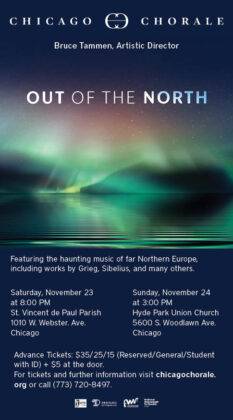
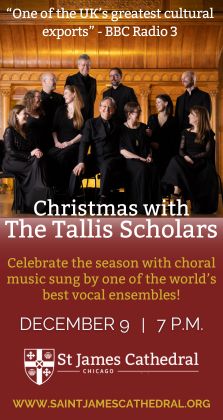
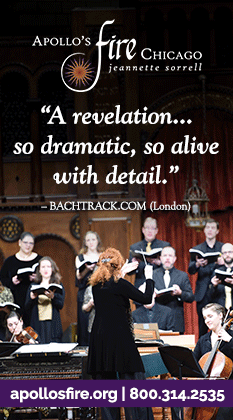
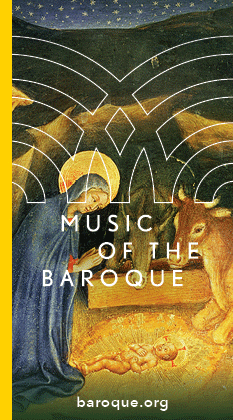
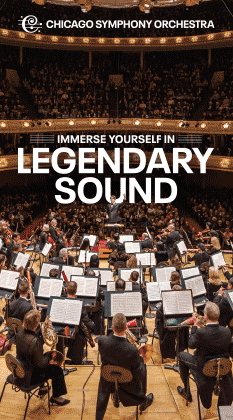
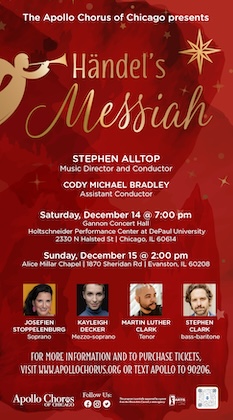
Posted Dec 17, 2010 at 11:29 pm by Andy Malovance
I was at Thursday night’s performance. Simply put, it was an inspiring musical experience. I am shocked by Mr. Cameron’s view on the Bach. I found the Bach to be one of the most exceptional musical performances I have ever heard. Their was a focused energy throughout that was captivating. All the musicians were on the same page. As far as a lack of flexibility, as a trumpet player myself I can state with certainty that the musicians were displaying complete mastery of their instruments (including flexibility). The Bach was the highlight of the concert for me; the especially long ovation at the conclusion of this piece confirms I am not the only one who thought this.